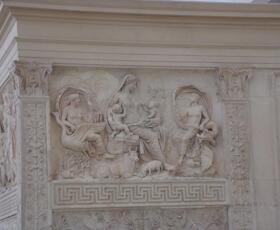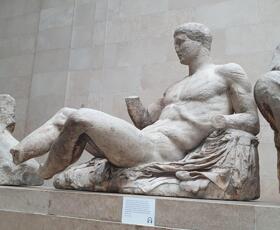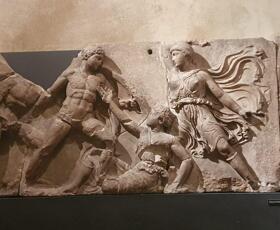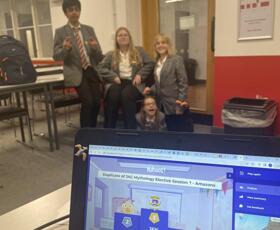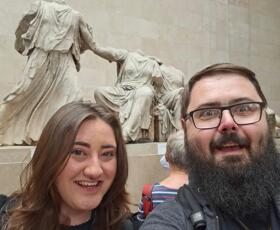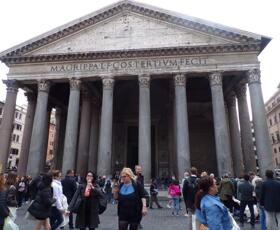Jane Austen College Receives Secondary School of the Year Award
Back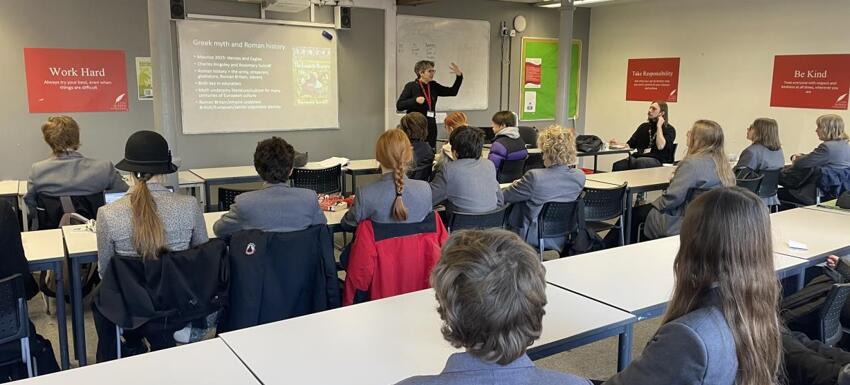
Jane Austen College is delighted to receive the Secondary School of the Year Award at the 4th annual Impact Awards by Classics for All, which champions the teaching of Classics in schools across the country.
The charity aims to raise the aspirations and build the cultural capital of young people from all backgrounds by teaching them about the ancient world, working with over 180,000 pupils in over 1,200 schools. The Impact Awards are a Teaching Awards Ceremony to recognise the outstanding achievements of schools and teachers across the country who have worked directly with Classics for All.
Classics for All (CfA) supported the development of GCSE and A-Level Classical Civilisation as part of the curriculum and Latin and Ancient Greek as extra-curricular enrichment by offering Jane Austen College a grant to support teacher training in May last year.
As a school with a rich interest in literature and history, Jane Austen College found that students and staff were drawn to Classics. The introduction of Classical Civilisation as an A-level subject in 2019 was a resounding success, immediately capturing the hearts and minds of our school community. This was quickly expanded into the GCSE curriculum, and so the first cohort began in 2021 through the efforts of a dedicated group of staff that had a background or interest in the subject. Since then, Classics at the school has continued to thrive, with trips to Rome/ Pompeii, The British Museum, and, most recently, a talk from Professor Helen Lovatt on the reception of Classics in Children's Literature.
Several A-level students choose to come to Jane Austen College specifically to study the subject as Classical Civilisation is not widely offered as a subject. A recent alumnus, Nancy, has achieved her dream to study Classics at university, securing a place at Cambridge! Jane Austen College supported her life-long ambition to study the subject not only through A-Level but also through unique extra-curricular opportunities, including trips to Rome and Pompeii, and a visit to University College London (UCL) for their annual performance of the Greek play.
Keely, who is studying GCSE Classical Civilisation, and who attended the Mythology Elective last academic year, said
“Personally, Classics has become the highlight of my school week. It is always engaging and informative, yet never overwhelming like some other subjects can be. This is in no small part due to the teachers. They are clearly enthusiastic about the subject, and it shows - they constantly go above and beyond to help the students fully understand each topic and person, not just to a level necessary for the exams.”
Kathryn, a year 13 pupil studying A-Level Classical Civilisation said
“I was determined to take Classical Civilisation at A-level, having studied Latin in Year 7 and finding that I preferred the context and history of the Ancient World to the language and grammar. However, I was surprised to see a state-school sixth form that offered Classics, having resigned myself to either attending a private school or choosing classics as the topic for my EPQ... Studying A-level Classical Civilisation at JAC also confirmed my decision to study Classical Archaeology and Ancient History at the University of Oxford, as it has shown me the importance of a small and inclusive class and wide-ranging extracurricular opportunities for supporting my studies.”
Professor Helen Lovatt, Professor of Classics at the University of Nottingham and Chair of the Council of University Classical Departments, visited Jane Austen College to deliver a talk to Classical Civilisation students, stating that
“Jane Austen College has introduced a lively and diverse group of students to the classical world in a very supportive and inclusive environment. They are doing great work at giving students a genuinely rounded education. I very much enjoyed visiting and meeting them, to talk about classical reception and children’s literature, particularly the lively discussion of dystopias in literature.”

